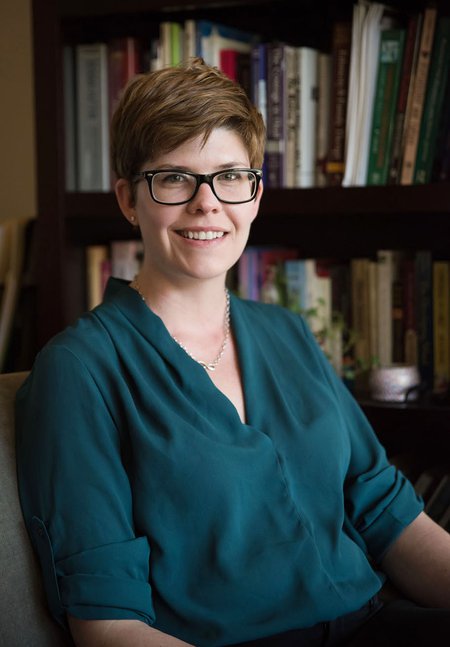Caltech recently spoke with Jennifer Howes, the campus's director of health and counseling services, to discuss what her office offers students and her goal of addressing students' counseling needs.
What types of services are available at the Caltech Counseling Center, and who can access them?
Our services are free, confidential, and available to all enrolled Caltech students. We offer brief individual psychotherapy, couples counseling, psychiatry, and crisis intervention, as well as outreach and training on a variety of mental health topics, such as suicide prevention. We also have a range of groups and workshops to help build resilience and coping skills as well as our mindfulness-based cognitive therapy class designed to help prevent depression relapse. And if a student needs open-ended therapy or a higher level of care, we can help find a provider in the community who will be a good fit.
There's a new development I'm really excited about. We recently hired a staff clinician who has a specialty in alcohol and other drug treatment and outreach. We are now able to offer individual and group interventions for substance use as well as provide education to students to help reduce high-risk behaviors.
Incidentally, Student Health Services—located at the same site as the counseling center—offers routine and episodic illness care to enrolled Caltech students, regardless of which health insurance plan they carry. Most basic health care needs can be met on campus, but if a student needs a specialist, radiology, or other services not provided on-site, we help students with referrals and follow-up.
Tell us about yourself and how you landed in your current role.
I'm a clinical psychologist, and I grew up here in Pasadena. I did my training in Southern California, and I was a staff psychologist at the Claremont Colleges before coming to Caltech in 2011. When the former director retired last year, I was asked to step in to this role on an interim basis and then given the permanent appointment in August 2016. I've had a lot of support from the vice president for student affairs, Joe Shepherd, and we've been able to develop and launch quite a number of new initiatives.
Why are these services so important at Caltech?
About 75 percent of mental illness presents before age 24, so, in general, the emergence of mental health issues is a concern with this age group. If we can intervene and help students build skills and address any issues they might be having related to their mental health, it can have a significant positive impact on their future success. There's no question that being a Caltech student is an intense experience, so we aim to make help easily accessible and effective.
What advice would you give to people who are wrestling with a personal issue but aren't sure whether or not they would benefit from counseling?
We always emphasize two things—that our services are confidential and that there really isn't an issue that's too big or small to address in counseling. We want all students to feel comfortable walking through our doors. We certainly do work with students who are struggling with serious concerns, but we see many students who just need to talk through a specific issue, learn how to help a friend, need connections to other resources, or want to find better ways to manage stress. We also work hard to meet students where they are and to create individualized ways to approach whatever concern is bringing them in.
What are some common misconceptions about counseling or the people who seek it out that you'd like to clear up?
I think one of our biggest challenges is the stigma around mental health issues and help seeking. Even though we see about 20 percent of Caltech students each year, there are some folks who are afraid to seek help. This fear can be based in a number of things. Sometimes it is worry about being viewed as weak, family disapproval, or cultural considerations. We want students to view coming to the Counseling Center as a natural step in their process to solve problems and to know that reaching out for help is actually a sign of strength.
What can people expect when they reach out or visit you for the first time?
Students can call, stop by the office, or send us a secure message to make an appointment. Our initial appointments are usually available within one to three days and are focused on identifying what a student needs and connecting them to the right resources. We are committed to seeing a student in crisis on a same-day basis to make sure that we can address whatever immediate needs that person might have.
How can people reach you and when?
We're open weekdays from 8 a.m. to 5 p.m., and we have extended hours on Monday and Wednesday until 7 p.m. Students can contact us by phone or via secure message through their student health portal. We also have after-hours support available during evenings, weekends, and whenever the office is closed. This is a service staffed by off-site licensed clinicians, and students can call (626) 395-8331 and press "2" to be connected.
For information, visit counseling.caltech.edu. The center is located at 1239 Arden Rd., Pasadena, or by calling (626) 395-8331.
The Staff and Faculty Consultation Center is available for all nonstudent members of the Caltech community. It can be reached at (626) 395-8360 or sfcc.caltech.edu.
 Jennifer Howes, the campus' director of health and counseling services
Credit: Caltech
Jennifer Howes, the campus' director of health and counseling services
Credit: Caltech

